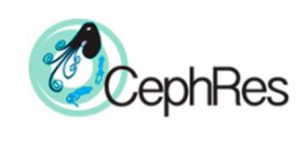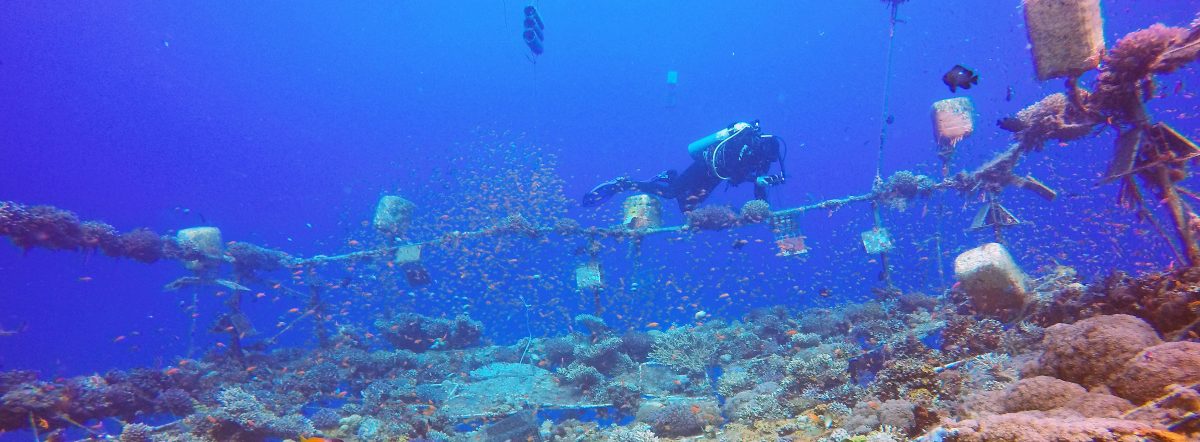Currently, the lab is involved in a number of research directions:
Polarization as a visual signal
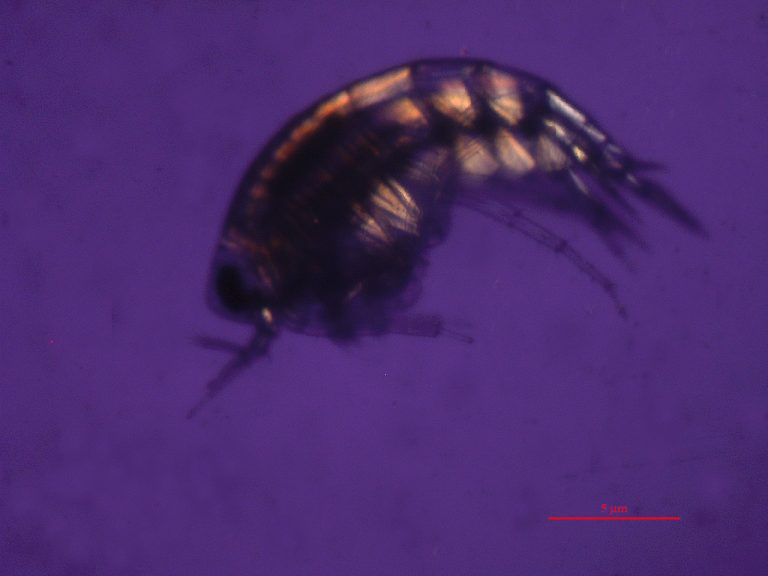
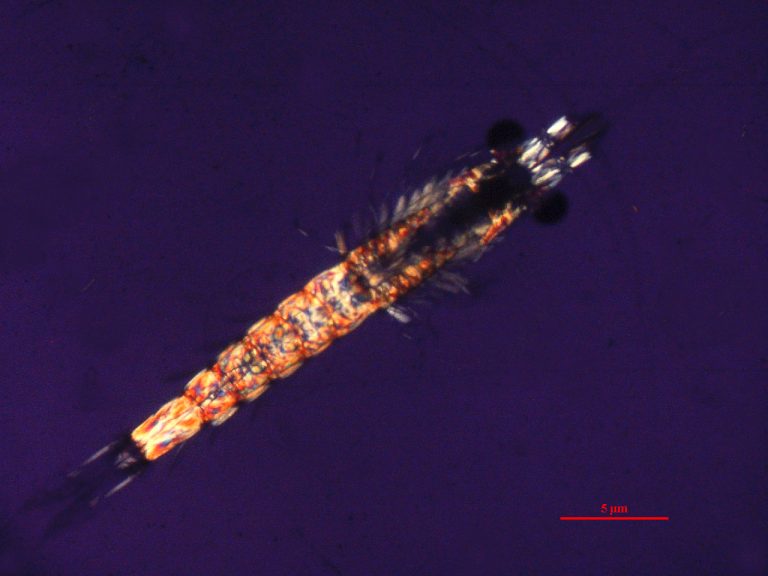

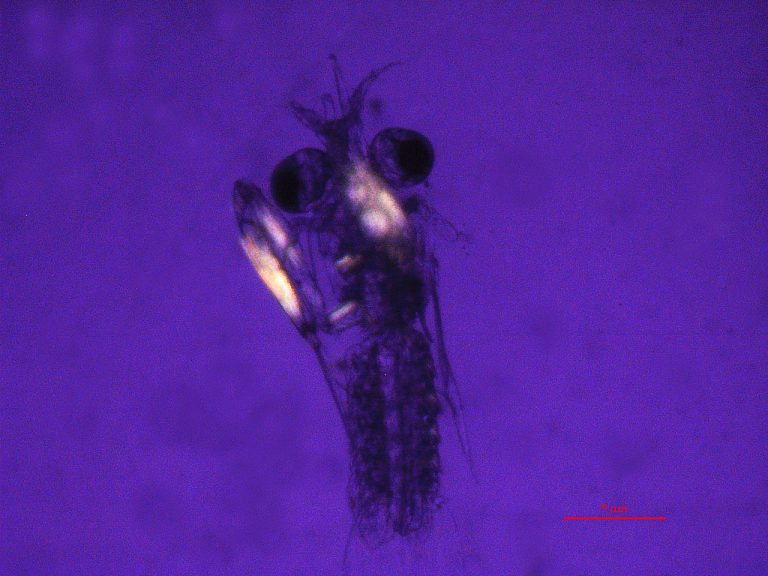
Polarized light propagates in water in a complex way. We study factors that affect the distribution of polarized light and examine the information that can be extracted from it. Next we test if polarization sensitive animals do indeed use this information in their visual tasks. These studies include characterization of polarization patterns created by zooplankton, examination of polarization refection from objects and fish, and describing environmental factors that affect the UW polarization pattern.
Polarization vision
Several species of marine animals are sensitive to the polarization of light. We wish to quantify this sensitivity, identify its function, and recognise its advantages/disadvantages and synergistic affects with other modes of vision. Our focal animals include cephalopods, planktivorous fish and more.
Dolphin research
In the International Laboratory for Dolphins Research, situated at the Dolphin Reef, in Eilat we study questions related to dolphin behavior, perception, communication and interactions with people. Our focal animals are a pod of common bottlenose dolphins (Tursiops truncatus ) residing in and around the Dolphin Reef facility.
Fish perception
The Umwelt of marine animals, such as fish, is very different from that of ourselves. Using behavioral experiments in the sea and the laboratory, we aim to better understand the visual world of fish and the processes governing their perception of the world.
Coral reef restoration
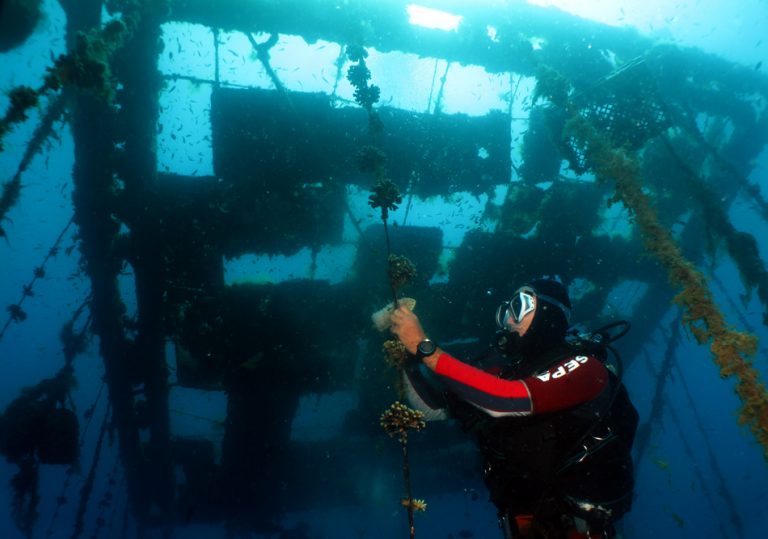
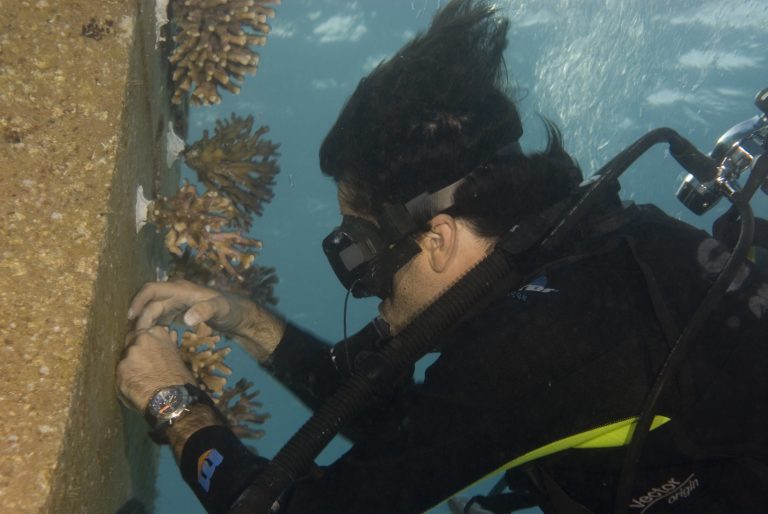
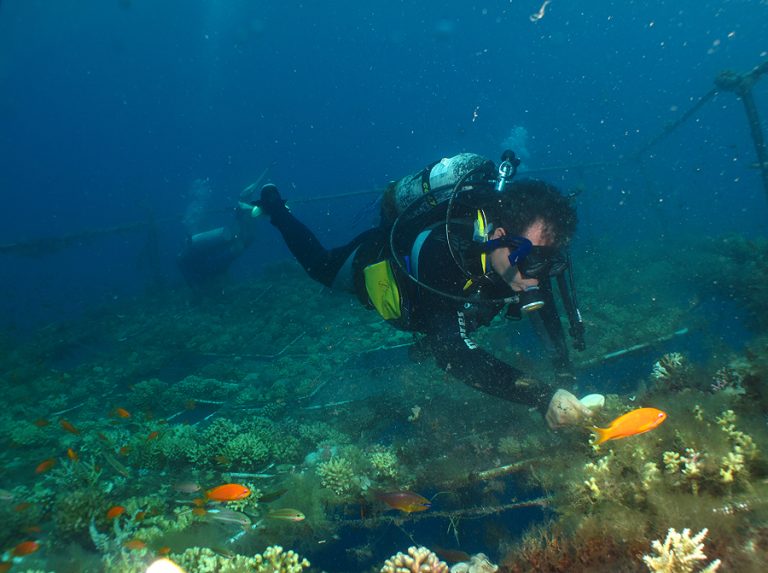
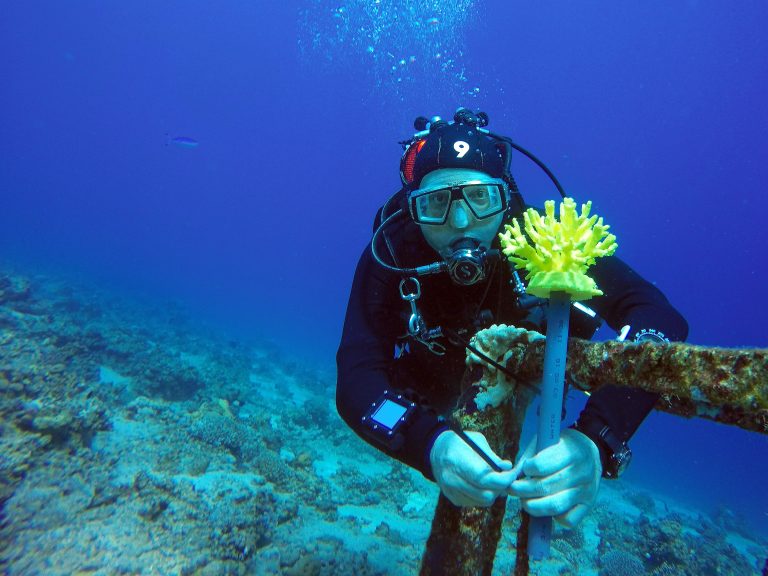
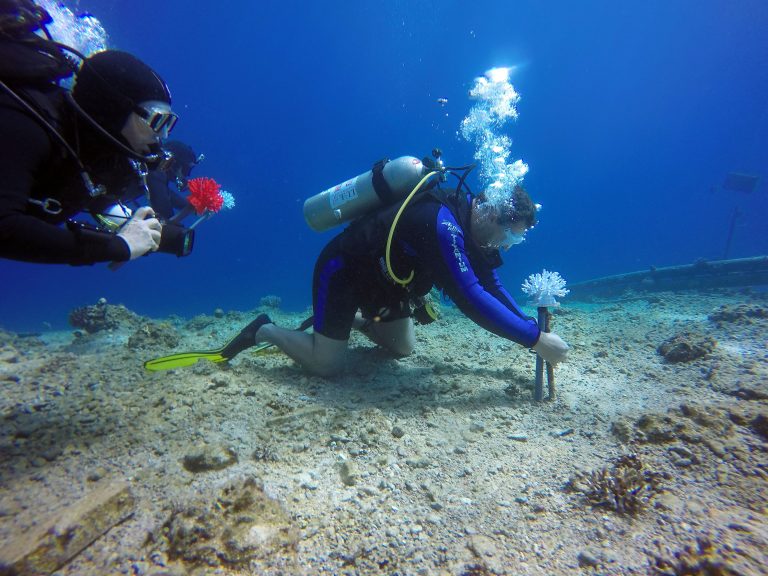
We live and work in a coral reef environment. It is our duty to develop methods and tools to insure that this complex and exciting environment will survive and flourish in the coming years. Working with many partners we examine methods for reef restoration and reduction of human pressures off natural coral reefs. These include coral planting designs, accelerated coral growth, finding substitutes for the use of live corals in the trade, and designing artificial coral reefs. The human factor is an important component in environmental preservation and we join forces to better understand it, and to incorporate it in our projects.
Water flow studies
Life in the sea is living in a moving environment. We are interested in the interactions between water flow and natural and artificial structures, such as corals, with the goal of developing biological friendly marine structures, and artificial reefs.
Our lab is a member of CephRes, the association for cephalopod research.
